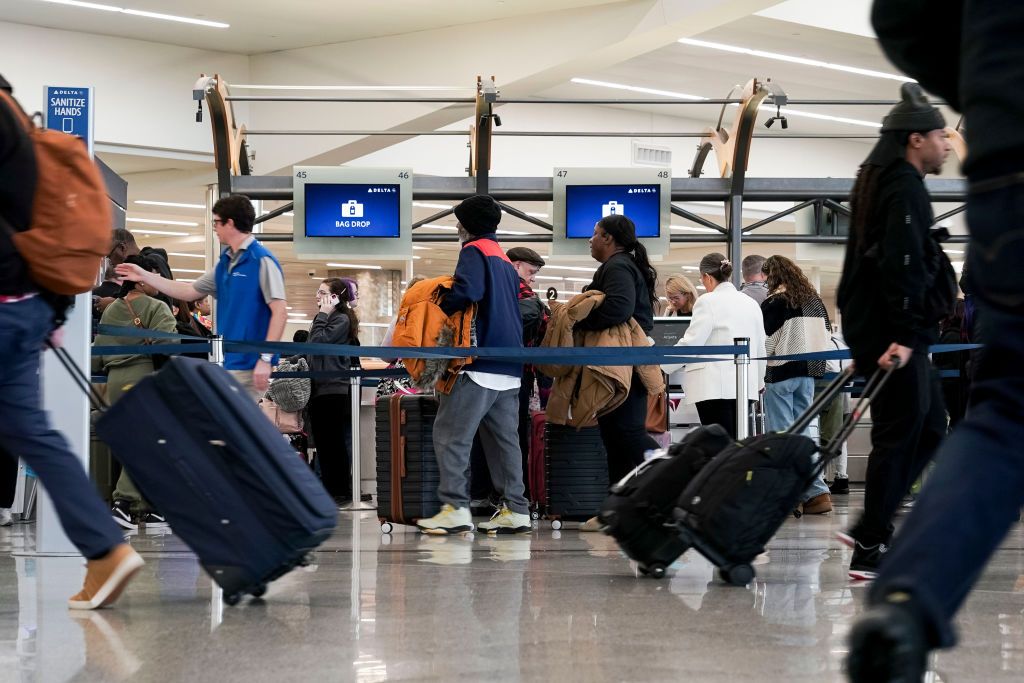
The U.S. government officially shut down on October 1, after Congress failed to reach a budget deal. For travelers, that doesn’t mean flights grind to a halt right away — but the longer the shutdown drags on, the greater the chance of delays and headaches.
Airport security screeners, air traffic controllers and customs officers are considered essential, so they’ll keep working through the shutdown. The catch is that they won’t be paid until it ends, and in past shutdowns, that’s led to staffing shortages as frustration builds.
If this shutdown stretches on, travelers could start to see longer lines, slower processing and other ripple effects across the system. Here’s what to expect if your plans overlap with a prolonged government shutdown.
What happens to travel in a long government shutdown
The U.S. travel economy now risks losing $1 billion per week due to disruptions in air and rail travel and the shutdown of national parks and cultural institutions, according to Tourism Economics.
A shutdown halts appropriations to agencies like the FAA, TSA and Customs and Border Protection. While essential services continue, hiring, training and other critical support functions stall, creating ripple effects that worsen the longer funding is frozen. For now, essential workers (e.g. screeners, air traffic controllers, customs officers) remain on duty — but without pay until the funding is restored.
The real pressure point for air travelers during a government shutdown occurs when frustrated federal employees tire of not receiving a paycheck and start calling out sick in large numbers, like they did during the 35-day government shutdown in late 2018 and early 2019.
When TSA agents and air traffic controllers are stretched thin, airport lines grow longer, wait times extend into hours, and travelers begin to feel the brunt of the shutdown.
How the government shutdown could affect your upcoming trip

If you’re hitting the road or catching a flight in the coming days, the shutdown shouldn’t immediately derail your plans. Airport security, customs and air traffic control are still operating, though the employees working those jobs aren’t being paid. For now, that means most trips will move ahead as scheduled.
The real concern comes if the shutdown stretches on. As workers miss paychecks, staffing levels can thin, leading to longer lines and slower processing at TSA checkpoints — even for travelers using Clear, TSA PreCheck or Global Entry.
To stay ahead, lean on holiday travel best practices: allow extra time, bring TSA-approved snacks and brace for delays. With record numbers of passengers expected this season, patience will be essential if the shutdown continues.
Other ways a government shutdown impacts travel plans
Even if you're not traveling by air, your travel and holiday plans could still be disrupted by a government shutdown, because it could also result in the closing of national parks, federally owned museums, monuments and attractions.
Many of the people who work in those places are not deemed essential. In 2018-19, many of these federal tourist attractions furloughed workers and were either closed or operated with skeleton staffs that resulted in subpar conditions, such as overflowing toilets and garbage cans.
So if you were planning to drive to a nearby park or attraction, double-check that it's open before you go.
Takeaways of a government shutdown's impact on travel
Travelers wondering how their trips may be impacted if the government shuts down should look at what happened during the longest-ever government shutdown in 2018 and 2019 as a roadmap.
Here are some takeaways:
Duration of the shutdown matters. In the last shutdown, news reports of hour-plus-long lines at airports, fight delays, and the closing of some terminals at major airports such as Miami International Airport didn’t occur until mid-January 2019, or roughly three weeks into the shutdown.
The staff shortages at airports caused by government workers calling out sick tended to pick up when these federal employees missed their first or second paycheck and started to feel the financial squeeze.
Check your documents. Getting a passport might also take longer due to staffing shortages. It’s possible that passport offices located inside federal buildings could close, too.
Do your homework. Most experts say a government shutdown isn’t a reason for travelers to cancel their trips, unless, of course, a national park you planned on visiting is closed. But what travel experts do recommend is doing your homework before you head to the airport, hop on a train or jump in the car to set off on a trip.
“Call ahead, do your research, and see what’s open and what’s not,” said Sarah Kopit, editor-in-chief at Skift. “Make sure you can get to where you’re going. And then make an informed decision as to whether it’s worth it (to go).”
And, if you do decide to travel during a government shutdown, leave extra time in the event there are delays at the airport.







